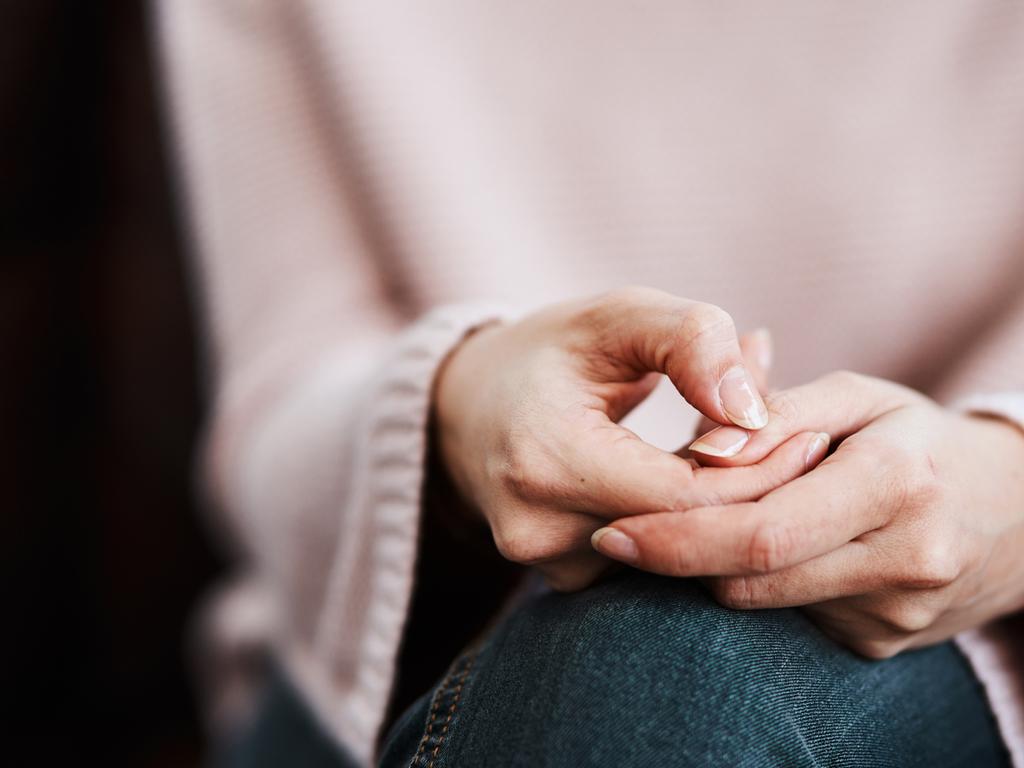How to recognise high functioning anxiety
Anxiety can be hard to distinguish, but clinical psychologist Professor Peter McEvoy has revealed three key clues to look for.
With the state of the world as tumultuous as ever, it’s no surprise rates of mental illness have skyrocketed.
The painfully invisible barrier has manifested into anxiety for a startling one in five Australians, many of whom live with the common but non-diagnosable strain – high functioning anxiety.
While it’s largely silent and invisible, the illness can have a broadly detrimental effect on people’s wellbeing and quality of life.
Peter McEvoy, a professor of clinical psychology at Curtin University, has identified three telltale characteristics of someone living with high functioning anxiety.

While it was often difficult to distinguish anxiety-driven behaviour from passion or motivation, Professor McEvoy said there were a few key traits to look out for.
Not being flexible
People with anxiety were likely to be inflexible in their thinking and behaviour, and could come across obsessive and rigid, Prof McEvoy said.
“They might be unable to switch off and shift their attention, for example from work, to other aspects of their life,” he told news.com.au.
Avoiding doing certain tasks
Some people struggling with anxiety may have a tendency to avoid doing certain tasks, or procrastinate on finishing them, Prof McEvoy said.
He said avoidance in the short term may provide some relief, but in the longer term was likely to make things worse.
Being overly obsessed
On the other end of the spectrum, people with anxiety might be hyper-focused on certain things which could manifest in controlling behaviour towards tasks or people, Prof McEvoy said.
“It could be over-planning or their behaviour might be quite domineering towards others,” he said.
“The strategies people use might look quite different but their function is the same.”
Those who were attempting to avoid or control a situation, both strategies were aimed at preventing something bad from happening, Prof McEvoy explained.
“Any extreme of avoidance or the opposite, control, could be a sign that people are really struggling with anxiety,” he said.
How can I support someone with anxiety?
An honest discussion could be the best way to approach a loved-one’s struggle with anxiety, Prof McEvoy said.
“Allowing someone the time to really express what’s going on for them is the first step,” he said.

People with anxiety may simply need social support with managing their work-life balance in a healthier way, he added.
They could also need help in re-engaging with elements of their lives they enjoyed prior to anxiety taking hold.
“If you’re noticing their sleep or their diet is suffering, you might need to chat with them and find out how to support them with adopting healthier habits,” Prof McEvoy said.
Seeking further help was also necessary in cases where anxiety was dictating the entirety of someone’s life, he said.
How to address physical symptoms of anxiety
Engaging in relaxing activities was crucial in simmering physical sensations caused by anxiety, such as panic attacks, Prof McEvoy said.
He said it would be different for everyone but could include meditation, walking, exercising or reading.
Dealing with anxious thoughts
Anxiety can manifest in thoughts through perceived threats to a person’s self-esteem or social wellbeing, Prof McEvoy said.
For some people, their behaviour is driven by the belief that if they don’t complete something, it will result in them “failing” or another terrible consequence.
“It’s important for people to be aware of what’s going through their mind and work at putting those thoughts into perspective,” Prof McEvoy said.
“Sometimes we predict negative things to be highly likely to happen when in fact, they’re far less likely than we’re expecting.”
Considering the ‘true cost’ of failure
Prof McEvoy encouraged those with anxiety to consider the “true cost” of something going wrong.
“Often we find that from time to time when things do go wrong, it’s not as catastrophic as we predicted it to be,” he said.
Many would be surprised to find their ability to cope far surpassed their expectations, he added.
The impact of Covid-19 pandemic on mental illness
Calls to mental health hotline Beyond Blue were up almost 30 per cent in the month leading to January 24 compared to last year, while 10 per cent more people contacted Lifeline.
The Covid-19 pandemic sparked a massive wave of stress, confusion and anger, according to a report by the Australian Institute of Health and Welfare.
While many weren’t expected to experience long-term concerns as a result, the report found the pandemic could have exacerbated long-term mental illnesses like anxiety, depression, PTSD and substance abuse.
An Australian National University study found that while psychological distress had decreased overall in January 2021 compared to November, a large group of people were still experiencing it to a high degree.
Women aged 18-24 years, indigenous Australians, and people who speak a language other than English still had higher levels of anxiety and worry, while a higher level of psychological distress was noted in the 18-44 age group.



